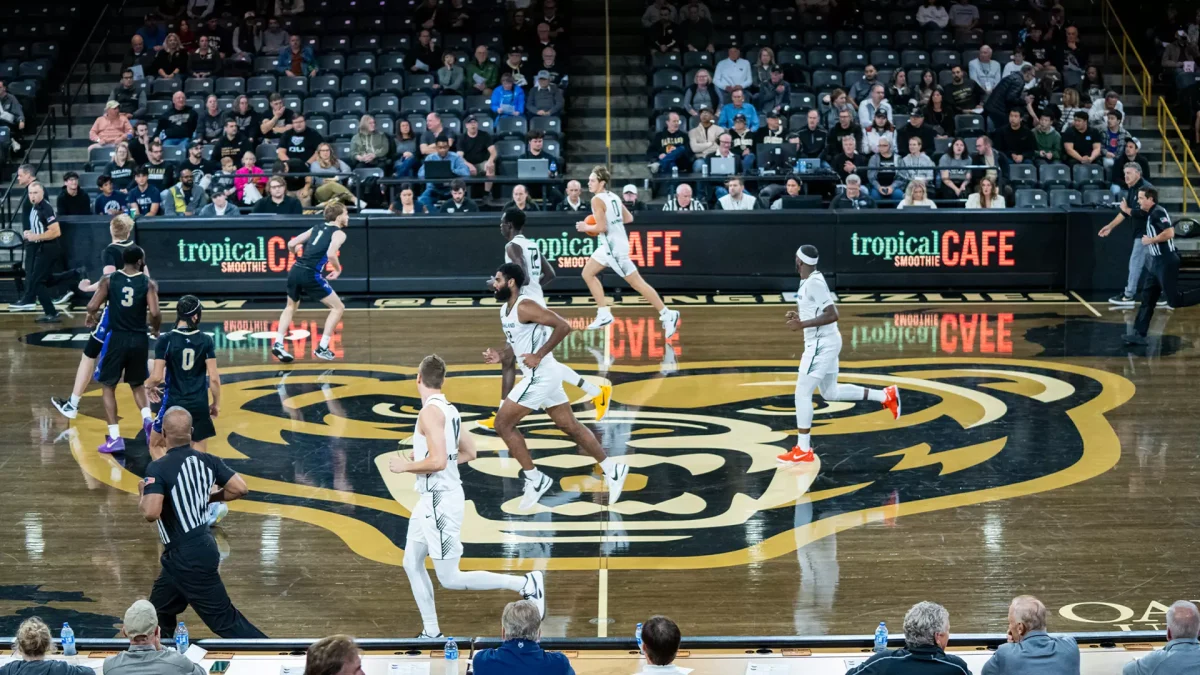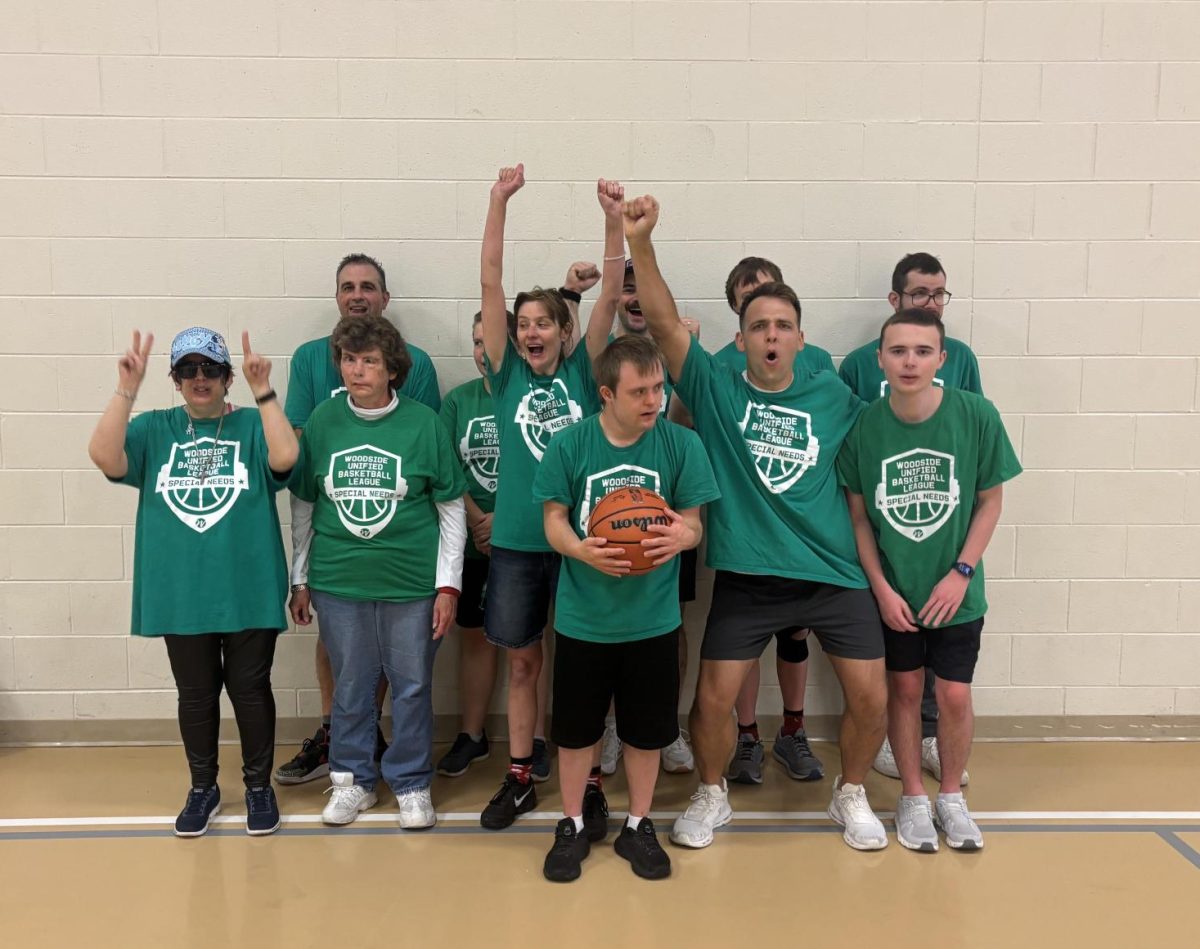“If you learn to use it right, the adversity, it will buy you a ticket to a place you couldn’t have gone any other way,” now-retired head coach Tony Bennett of the University of Virginia said in a press conference in 2019. The success of the 2018-19 Virginia Cavaliers came on the heels of Virginia losing as the No. 1 seed the year before in March Madness.
Oakland men’s basketball heard a similar message after Wednesday night’s loss at Boise State University (BSU), an 87-43 beatdown that was over almost as soon as it began.
Boise State came out of the gate running and gunning, beginning the game with a dunk followed by back-to-back threes. Another layup and a three gave the Broncos a commanding 13-2 lead as Oakland was forced to call a timeout before the first media timeout.
The Golden Grizzlies stabilized the game for a while, holding the deficit at about 13 points before graduate student Jayson Woodrich hit a three to cut it to 12.
Throughout the first half, fatigue and confusion in OU’s zone defense began to show. The Boise State offense scored easy transition baskets and found easy catch-and-shoot looks, eventually ballooning the lead to 36-16 with four minutes left to play.
Oakland head coach Greg Kampe emphasizes the importance of the last four minutes in the first half of games. It sets the tone going into the half and can help stabilize a game on the verge of breaking open. The last four minutes were entirely owned by Boise State, outscoring Oakland 16-2. The Golden Grizzlies faced a massive 48-18 deficit at the half.
In games like these, it is important for a team to never give up and continue to fight until the buzzer sounds. Kampe echoed these sentiments at halftime, acknowledging the score but caring more about execution and energy in the second half.
OU began the half by running a play to senior forward Buru Naivalurua, who hit a smooth turnaround jumper along the baseline. After a Woodrich layup, senior guard DQ Cole hit his first three of the game.
Just as Oakland began to show some life, Boise State responded with a handful of layups, two courtesy of preseason Mountain West player of the year Tyson Degenhart. Degenhart used his great size and frame at 6’8″, 235 pounds, to punish Oakland all night, finishing with 13 points and five rebounds. The combination of him with 7-footer Dylan Anderson and 6’8″ O’mar Stanley proved difficult for the Golden Grizzlies to handle.
Credit is due to Boise State’s defense. Oakland was held to just 37.5% on two-point attempts in the game, largely due to BSU’s suffocating size, which tallied five blocks and 33 defensive rebounds. For an offense that prides itself on effective ball movement, the Golden Grizzlies only had two assists in the game while the Broncos racked up 23, with most of them transition throw-aheads.
As shot after shot refused to fall for OU, the Boise State lead kept expanding, as frustration led to missed defensive shifts and wide-open shots for the Broncos. Even on made baskets, the Golden Grizzlies failed to get back on defense, resulting in easy layups or dunks that fired up The Corral, BSU’s student section. As the second half winded down, Oakland found themselves down 87-43, earning them their first loss of the season.
After the shooting prowess of last year’s team, the early-season struggles of the Golden Grizzlies are a little jarring. OU shot 3-26 on three-point attempts, eerily similar to a 2-30 showing against U-M in an exhibition game. Oakland got better looks against inferior competition in Rochester, shooting 8-26 from deep and Defiance, converting 9-32 from three.
A major focus going forward for the Golden Grizzlies must be better shot-making and getting into their offensive sets. Boise State frequently disrupted Oakland’s actions and forced them to make plays with defenders right in their faces.
As mentioned earlier, adversity is a great teacher. With road trips to Illinois and Kansas looming, Oakland must learn from this loss and be ready to grow and take on the next challenges.
College basketball is a marathon, not a sprint; a few losses early in the season do not determine the year’s success. By facing strong competition and testing themselves as a team, Oakland will benefit greatly when February and March come around, just as they did last year.




